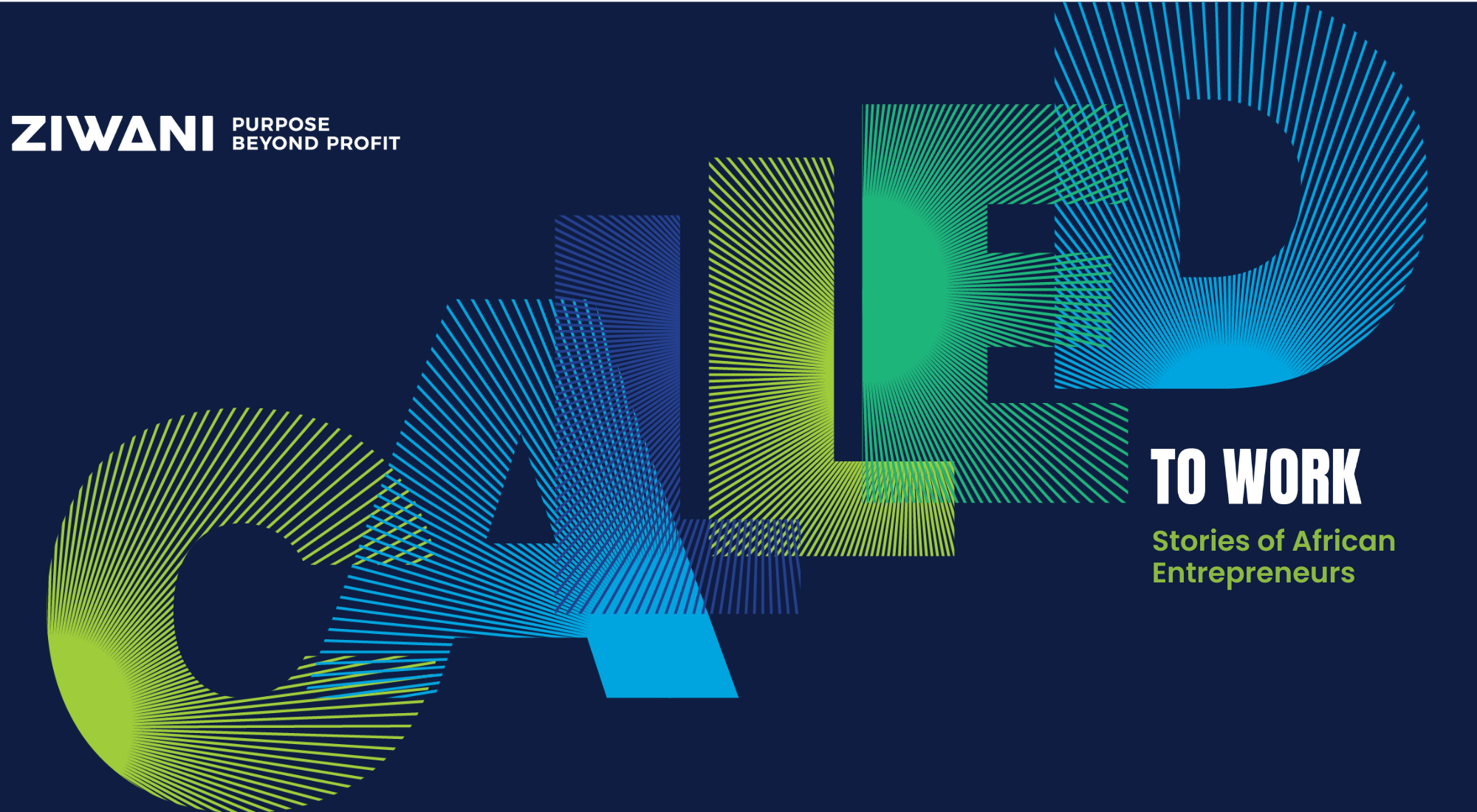There’s nothing like the power of storytelling. Stories inspire, and help us envision our lives not just as they are, but as they could be. When someone tells their story, and God is at the centre of it, more often we discover something of our own story too. Africa has always embraced storytelling as a means of tying one generation to the next, a thread connecting culture and wisdom over centuries. Across its rich cultural tapestry are countless stories that give expression to the unique innovation, creativity and dynamic spirit of its people, particularly in the marketplace.
Ziwani’s passion has always been to capture these narratives and bring them to life. That’s why we are thrilled about our latest series ‘Called to Work: Stories of African Entrepreneurs‘ – an 8-part video series documenting the lives of entrepreneurs across the African continent who have walked incredible faith journeys in the African marketplace. Alongside their personal stories, we unpack the biblical principles shaping their journey, providing viewers with theological perspectives to apply in their daily lives and marketplace realities. Says Ziwani’s Sibs Sibanda, ‘This video series follows in the African tradition, as entrepreneurs tell their stories and testify to what God can do through ordinary men and women in business.’
The inspiration behind the ‘Called to Work’ series
When launched in 2021, Ziwani primarily served as a knowledge hub, with dedicated content focussed on the integration of faith and work. Gradually as a strategic community of peers and advisors formed, the team was able to ask more targeted questions around how best to support business leaders in the ‘trenches’ of African entrepreneurship? What do African business leaders need to live out their callings, with excellence, joy and feeling well equipped?
From this question, different focus areas were identified – one of which being the need to present relatable and authentic stories of Africans, for Africans. ‘There was an evident gap in representation and relevance when it came to Christian business content,’ says Ziwani head Keri-Leigh Paschal. ‘Africa is unique in its marketplace contexts, and we wanted to capture some of the stories that give expression to this uniqueness; stories that mirror the lived reality of our dynamic and distinctive continent.’
With this end in mind, Ziwani collaborated with ecosystem partner, Faith Driven Entrepreneur – adapting their existing foundation series to suit the an African context. After three years of travel and filming across the continent, Called to Work came to life. A project that champions the power of partnership, the Called to Work series aims to resonate with leaders across sub-Saharan Africa, passionate about faith and business, and eager to learn from peers who understand the realities and roads they navigate.
‘Over time it’s become clear that these videos were created, not just to ‘fill a gap’ in our content,’ said Ziwani’s producer of the series, Lise-Marie Keyser. ‘These rich stories allow other African entrepreneurs to see their own story inside them – the shared challenges, fears, faith and aspirations. Being part of the production team, spending time in homes and around tables filming these inspiring stories, was an incredible privilege. The fact that each person gave us access, not only to their expertise and insights but to their very lives, speaks to their heart of generosity and true partnership.’
What the Called to Work series entails
Each session consists of two videos – one teaching session and one testimony video. The teaching sessions, hosted by Sibs Sibanda and Roedolf Botha, delve into the theology and fundamental principles underpinning entrepreneurship. At the same time, the testimony videos breathe life into these very principles through the authentic experiences of entrepreneurs in various African contexts, from South, East and West Africa.
Accompanying the video series is a thoughtfully designed resource guide to navigate through the sessions. This guide, packed with reflective questions, invites participants to reflect on the core principles discussed and envision how these insights can be integrated into their business practices and industry landscapes.
‘The series caters to various audiences, including the church community,’ adds Keri-Leigh. ‘Our hope is that it can serve as a valuable resource for small group discussions. The accessibility of the series also makes it an ideal platform for fellow congregants and peers to go through the material together, exploring what it means to be called to the marketplace. We believe these videos, along with the accompanying biblical teaching, will equip every Christian to take steps towards living out what you feel God has called you specifically to do from Monday to Saturday.’
The stories inside the series
The series spans diverse landscapes, encompassing not only different geographical regions but also a broad spectrum of industries. Topics are clear and applicable, filled with faith lessons that have been forged in the furnace of life experience.
Nelson Ashitiva, for example, speaks to the concept of loving your neighbour through business. Rising from a one-man band in a notorious Nairobi slum, to an award-winning advocate and founder of a Top Ten law firm in Kenya, he shares on the importance of creating entrepreneurial opportunities for others.
Co-founder of the African Council for Accreditation & Accountability, Valentine Gitoho, and James Gitoho, award-winning architect, speak to the art of doing excellent work, without becoming slaves to it. ‘Don’t worship work’, their message entails, emphasising the significance of knowing your identity in Christ as you lead in the marketplace.
‘Called to Create’- the story of three trailblazers, Sandy Barlow and Pete Howie, co-founders of Seattle Coffee Co., and contemporary artist Philip Barlow, recalls their 20-year journeys of highs and lows in business. It highlights the incredible testimony of finding beauty in the mundane, rooted in the enduring ‘call to create’ in the marketplace.
Each of the eight videos are short, inspirational documentaries, aimed to inspire business leaders how they, by faith, can make a meaningful impact in the African marketplace.
Watch the trailer here:
Click here to view the sessions and learn more about the series.





